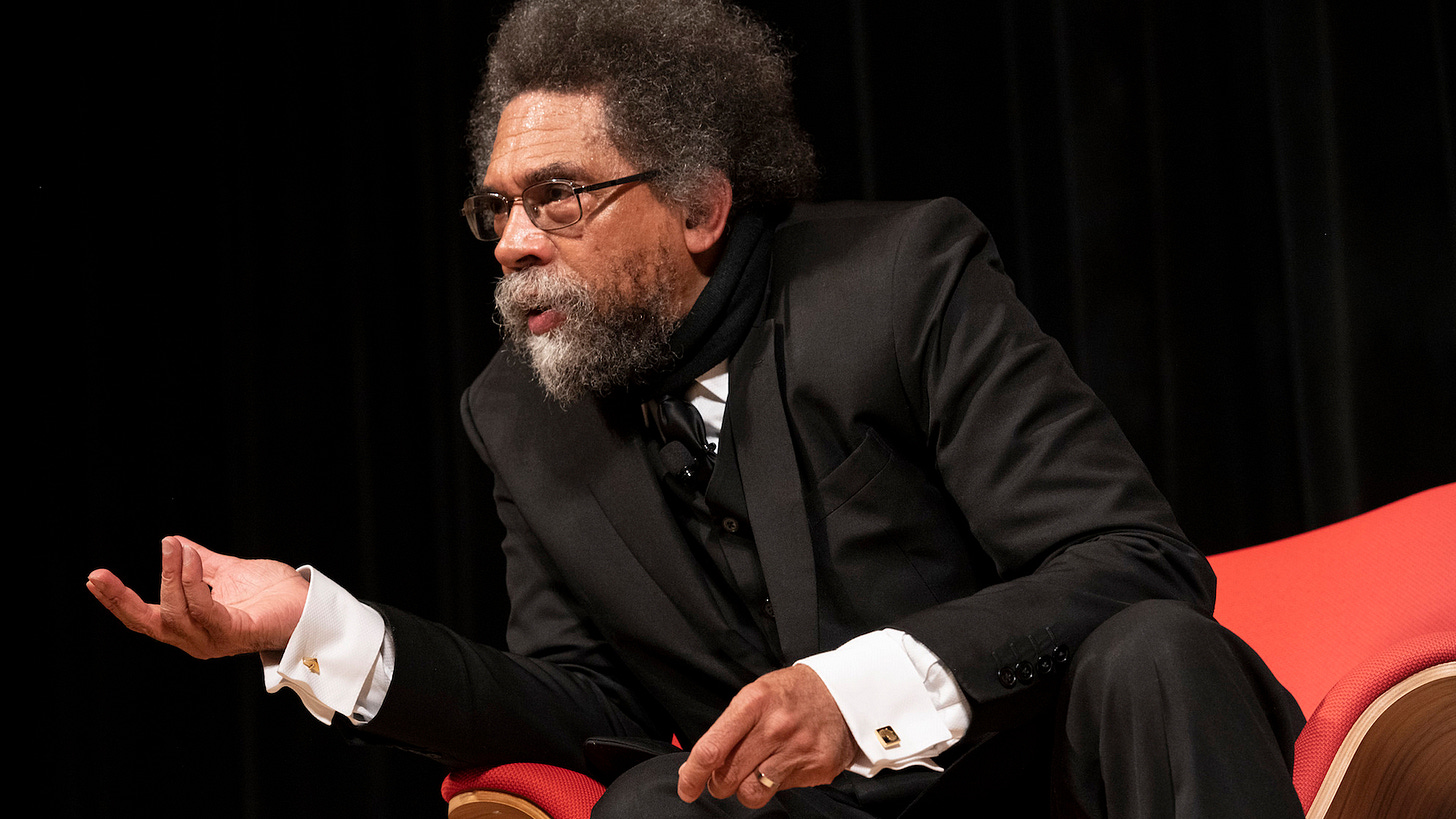To destroy what you’ve built in a world that insists on reshaping your work for its own profit or propaganda is not an act of despair—it is an assertion of autonomy and act of protest.
In a society that commodifies creativity, to implode your own work is to reject the systemic control that seeks to neuter the radical and free-thinking spirit. This is a statement, a rebellion against the forces that commodify every ounce of individual genius for collective exploitation.
It is to preserve the sanctity of free enterprise, to stand as a warrior for one’s creative sovereignty. Howard Roark, Ayn Rand's fiercely independent architectural hero in the book “The Fountainhead,” didn’t just fight for his buildings, he fought for his right to determine what they represented. In the words of Roark from these book excerpts:
“I am an architect. I know what is to come by the principle on which it is built. We are approaching a world in which I cannot permit myself to live. My ideas are my property. They were taken from me by force, by breach of contract. No appeal was left to me. It was believed that my work belonged to others, to do with as they pleased. They had a claim upon me without my consent. That is was my duty to serve them without choice or reward.”
“Now you know why I dynamited Cortlandt. I designed Cortlandt, I made it possible, I destroyed it. I agreed to design it for the purpose of seeing it built as I wished. That was the price I set for my work. I was not paid. My building was disfigured at the whim of others who took all the benefits of my work and gave me nothing in return.”
“I came here to say that I do not recognize anyone's right to one minute of my life. Nor to any part of my energy, nor to any achievement of mine. No matter who makes the claim. It had to be said. The world is perishing from an orgy of self-sacrificing. I came here to be heard. In the name of every man of independence still left in the world. I wanted to state my terms. I do not care to work or live on any others. My terms are a man's right to exist for his own sake.”
His act of demolition was less about destruction and more about preservation—preservation of his vision, his freedom, and his essence.
So what might Lao Tzu, Ayn Rand, and Cornel West have thought of this creative rebellion? These radical thinkers, who stood outside the status quo of their time, each hold keys to understanding the wisdom of imploding one's own creation to preserve its purity.
Lao Tzu and the Power of Non-Action
Lao Tzu, the father of Taoism, would likely view such an implosion through the lens of “wu wei”—the philosophy of non-action, or effortless action. But in this context, non-action is not passivity but a deliberate act of refusing to engage with systems that seek to control or diminish the individual.
Lao Tzu believed that those who understand the flow of the universe know when to let things go, when to let them dissolve rather than forcing them into a shape they were never meant to take. To implode one’s creative work is to surrender to the natural unfolding of events, recognizing that clinging to creation under the heavy hand of exploitation only leads to more suffering.
For many of us whose work is repeatedly misappropriated and exploited by the systems of systemic racism, misogyny, and capitalism, such an implosion could be seen as the ultimate act of liberation.
Lao Tzu’s wisdom reminds us that power comes not from trying to control the outcome, but from letting go when the time is right. The explosion of one’s own work is a rejection of control from oppressive structures, a refusal to allow the cultural products of humanity to be siphoned off by those who attempt to erect barriers to freedom.
Ayn Rand: The Individual Over the Collective
Ayn Rand, an unabashed champion of radical individualism and capitalism, would applaud the decision to destroy what is yours rather than let others take it. Rand's philosophy of Objectivism insists that the individual’s vision must never be compromised for the sake of the collective, especially when the collective represents a system of oppression.
In “The Fountainhead,” Roark’s destruction of his own building was not an act of anger—it was an act of ownership. It was a declaration that his work belonged to no one but him, and he would rather see it reduced to rubble than bastardized by mediocrity.
For creatives, particularly those navigating systemic racism and sexism, there is power in this refusal to compromise. The American system, historically, has sought to appropriate the innovations, labor, and artistry of women and people of color while denying them full participation in the economic rewards of their creations.
From music and literature to technology and intellectual thought, many of these creators have often been used as the engine of cultural progress while being shut out from the benefits. By taking a page from Rand’s Roark, we creators can reclaim their creative freedom by destroying that which would be taken from them, asserting control over their own narratives and intellectual property.
Cornel West
Cornel West and His Revolutionary Praxis of Refusal
Cornel West, with his deep understanding of systemic injustice and radical love, would view this act of creative implosion as a form of resistance.
West argues that systemic racism and capitalist exploitation are intertwined, and that Black Americans in particular must seek ways to transcend these systems through revolutionary acts of refusal. The decision to destroy one’s own creative work, to deny it to a system that perpetuates inequality, could be seen as an act of liberation and dignity.
For West, the implosion of creative work in a society that exploits it could serve as a form of radical praxis. By refusing to allow one’s intellectual property to be commodified by a system that has historically devalued Black bodies and minds, Black Americans reclaim their agency.
They send a message that their creative work is not for sale, not for exploitation, not to be hollowed out and repackaged by the very systems that seek to oppress them.
Why Destroying Your Own Work Might Be the Most Radical Act of All
In a society that thrives on the commodification of every aspect of human life—particularly the intellectual and cultural products of marginalized groups—destroying one’s own creation can be the ultimate anarcho-capitalist gesture. It’s a middle finger to the system, an acknowledgment that the world does not deserve your genius if it seeks to distort it for its own gain.
For Black Americans, this could be an especially powerful strategy. The system that has stolen Black labor, Black culture, and Black intellectual property for centuries has no right to the fruits of your creativity. Rather than allow your work to be co-opted and diluted by a racist system that values your output but not your humanity, you can take control by denying them access to your most valuable asset—your mind.
To implode your work is to assert that your creation is yours alone, that you will not compromise your vision for the sake of capital or approval from a system that has always sought to exploit you. It is a reminder that creativity is not just a product, but an extension of your being, and that true freedom comes from the power to destroy just as much as it comes from the power to create.
In an era where even the most radical ideas are often co-opted by the very forces they seek to overthrow, imploding one’s work is an act of defiance.
It is a return to the self, a reclamation of the right to choose what becomes of the product of your mind, and a refusal to allow the world to twist it into something it was never meant to be.
Perhaps, as creatives navigating the intersection of systemic racism and capitalism, we ought to embrace this power. The power to build, to create, and—when necessary—the power to destroy, ensuring that our work remains ours, untainted, and forever free.
Unleash the Syrup: Become a Member of The Chocolate Taoist™ Tribe
Since 2022, The Chocolate Taoist has delivered uncommon nomadic wisdom to help you live a more interconnected and expansive life.
If this publication has been a source of wisdom for you then please consider helping me sustain it by becoming a monthly or annual contributor.
For just $6.00/month or $60.00/year, you’ll have the opportunity to share your lived experiences with fellow nomads, fueling fiery discussions that provoke, inspire, and challenge you to think differently.
So I hope you will take the plunge today and contribute to my mission of helping human travelers on this life journey.
Onward and Forward
Diamond Michael Scott aka The Chocolate Taoist






